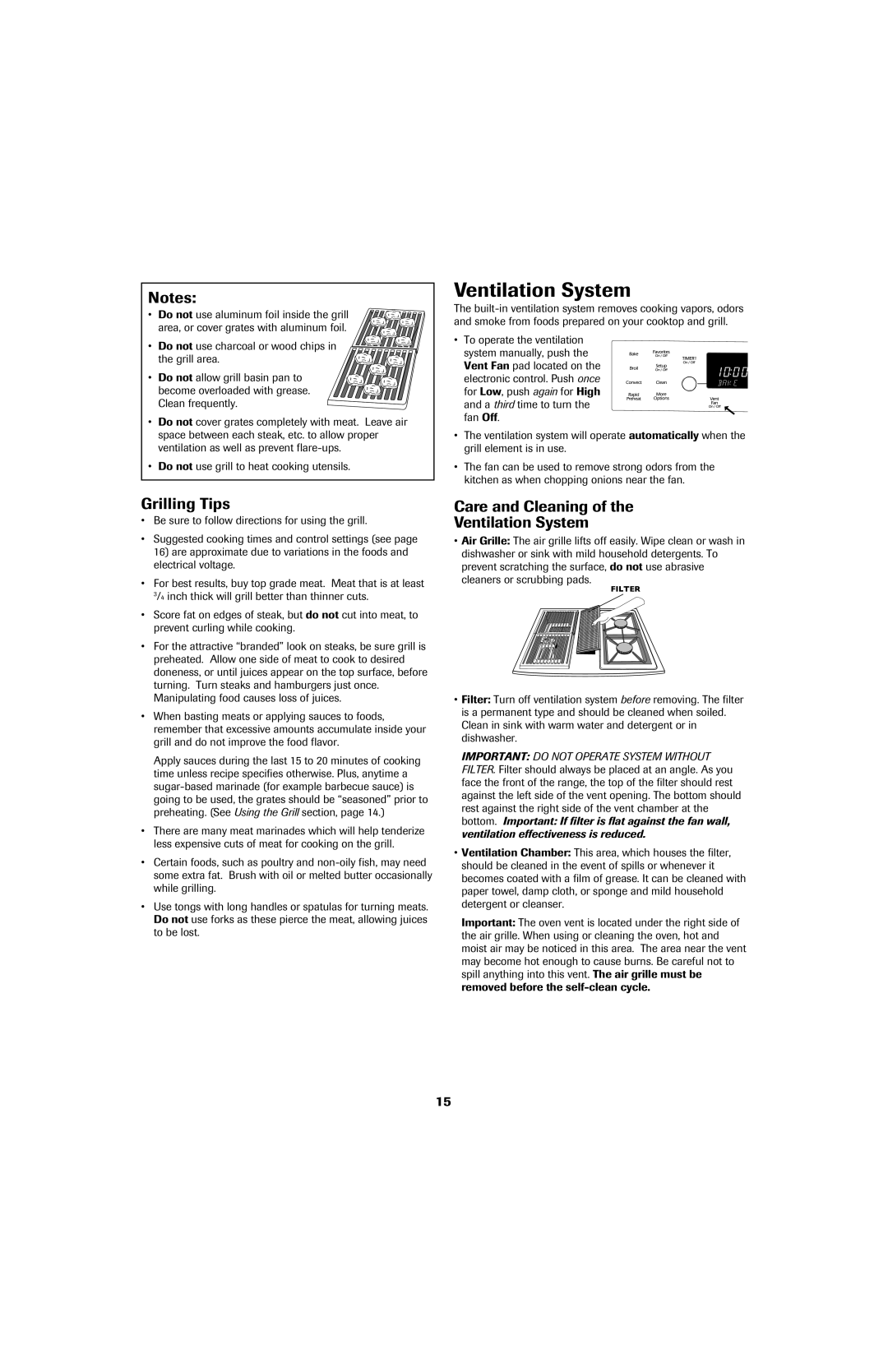
Notes:
• Do not use aluminum foil inside the grill area, or cover grates with aluminum foil.
• Do not use charcoal or wood chips in the grill area.
• Do not allow grill basin pan to become overloaded with grease. Clean frequently.
•Do not cover grates completely with meat. Leave air space between each steak, etc. to allow proper ventilation as well as prevent
•Do not use grill to heat cooking utensils.
Grilling Tips
•Be sure to follow directions for using the grill.
•Suggested cooking times and control settings (see page 16) are approximate due to variations in the foods and electrical voltage.
•For best results, buy top grade meat. Meat that is at least 3/4 inch thick will grill better than thinner cuts.
•Score fat on edges of steak, but do not cut into meat, to prevent curling while cooking.
•For the attractive “branded” look on steaks, be sure grill is preheated. Allow one side of meat to cook to desired doneness, or until juices appear on the top surface, before turning. Turn steaks and hamburgers just once. Manipulating food causes loss of juices.
•When basting meats or applying sauces to foods, remember that excessive amounts accumulate inside your grill and do not improve the food flavor.
Apply sauces during the last 15 to 20 minutes of cooking time unless recipe specifies otherwise. Plus, anytime a
•There are many meat marinades which will help tenderize less expensive cuts of meat for cooking on the grill.
•Certain foods, such as poultry and
•Use tongs with long handles or spatulas for turning meats. Do not use forks as these pierce the meat, allowing juices to be lost.
Ventilation System
The
• To operate the ventilation system manually, push the Vent Fan pad located on the electronic control. Push once for Low, push again for High and a third time to turn the fan Off.
•The ventilation system will operate automatically when the grill element is in use.
•The fan can be used to remove strong odors from the kitchen as when chopping onions near the fan.
Care and Cleaning of the
Ventilation System
•Air Grille: The air grille lifts off easily. Wipe clean or wash in dishwasher or sink with mild household detergents. To prevent scratching the surface, do not use abrasive cleaners or scrubbing pads.
FILTER
•Filter: Turn off ventilation system before removing. The filter is a permanent type and should be cleaned when soiled. Clean in sink with warm water and detergent or in dishwasher.
IMPORTANT: DO NOT OPERATE SYSTEM WITHOUT FILTER. Filter should always be placed at an angle. As you face the front of the range, the top of the filter should rest against the left side of the vent opening. The bottom should rest against the right side of the vent chamber at the bottom. Important: If filter is flat against the fan wall, ventilation effectiveness is reduced.
•Ventilation Chamber: This area, which houses the filter, should be cleaned in the event of spills or whenever it becomes coated with a film of grease. It can be cleaned with paper towel, damp cloth, or sponge and mild household detergent or cleanser.
Important: The oven vent is located under the right side of the air grille. When using or cleaning the oven, hot and moist air may be noticed in this area. The area near the vent may become hot enough to cause burns. Be careful not to spill anything into this vent. The air grille must be removed before the
15
